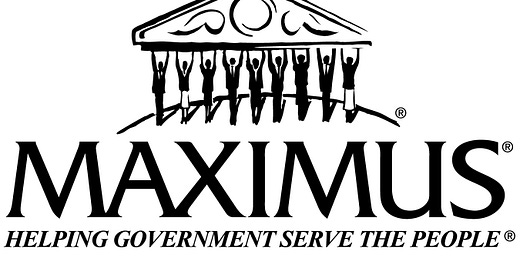ACA Call Center Company Healthcare Coverage More Expensive for Employees Than Plans They Help Others Access
The very workers who the federal government trusts to help millions of Americans access affordable healthcare are struggling to afford their company plans
Today marks the beginning of open enrollment under the Affordable Care Act, where Americans will brave a labyrinthine bureaucracy to get care, aided by workers at call centers run by federal contractor Maximus Inc.
Those contractors, according to a new report from the Communication Workers of America, are struggling to afford the very care they help others access—Maximus plans are more expensive than comparable plans and have high deductibles.
“CWA compared Maximus’ health plans to comparable plans on the ACA marketplace in all 11 counties where CCO call centers are located and found that, on average, Maximus plans are a worse deal for workers than the ACA plans,” according to the report. “This means that, in many cases, workers at Maximus are being offered worse health plan options for themselves than the ACA plans that they are responsible for helping fellow citizens access.”
The company’s base plan is $1,000 more than the average for comparable plans offered to consumers through the ACA—with a $4,500 deductible—and the buy-up plan costs $3,000 more.
The irony of workers for a company that claims $4 billion in annual revenue generated from helping people access care through the ACA is hard to overstate.
Your support makes these stories possible.
Striketober
Two weeks ago I brought you a report on flight attendants from Piedmont Airlines who were awaiting the results of a vote authorizing a strike. The totals came in with a resounding, and virtually unheard of, 100% in favor of authorizing a strike at the American Airlines subsidiary.
“We are already paid less than our counterparts at other regional carriers, and far less than mainline flight attendants doing the same work at the American Airlines Group,” Keturah Johnson, AFA Piedmont President, said in a statement. “Enough is enough. Piedmont Flight Attendants can’t afford to work at Piedmont.”
At Business Insider yesterday, I put the vote in the broader context of what’s been dubbed “Striktober.”
The flight attendants and the workers already on strike this month are just a symptom of widespread anger. After nearly two years of pandemic-inspired uncertainty, chaos, and inequity, American workers are ready for change.
“It sickens me seeing how these people wanna run a business vs what I’m learning in school,” worker Kylee Johnson told me in July. “It seems they’re more about the dollar than about the people and that’s sad.”
Companies haven’t given workers the impression they care for a long time, and those chickens are coming home to roost. In Bardstown, Kentucky, where a strike at the Heaven Hill Distillery just ended after six weeks, workers at the plant described a culture where unequal outcomes for management and floor workers was exacerbated by the pandemic.
With the stroke of a pen: student loan repayment looming
With the specter of student loan repayments on the horizon—only months away now—yesterday I expanded on my articles from October on borrowers.
As of January 31, 2022 that pause is over. Repayments will restart and interest will once again begin to accrue on the debts. For a growing number of lawmakers, that's unacceptable - and the fact that Senate Majority Leader Chuck Schumer, a pure political weathervane, is at the forefront of the charge to forgive the debt is a clear sign that the winds have shifted.
As Schumer and many, many others have repeatedly noted on social media, Biden has the power to dispense with the entirety of federally held student debt with the stroke of his pen. Student loan cancellation isn't hard, and in addition to being the right thing to do, which is seldom motivation enough for politicians to do something, loan forgiveness would stimulate the economy and earn the political loyalty of millions of Americans, many of whom have decades of voting ahead of them.
Progressive Democrats have called on Biden to forgive $50,000 per borrower, which would erase the debt of 80% of those who are still in debt. But the president, who said as recently as February that he'd forgive $10,000 per borrower, appears to have forgotten the issue completely.
If you liked this story, please consider a paid subscription.




